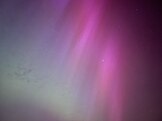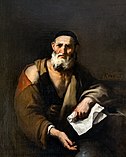User:Tazmaniacs
Those are very helpful guidelines to write Wikipedia:
- WP:SOURCE (WP:Attribution)
- WP:CITE sources
- WP:AUW, WP:DATE and WP:CONTEXT: stop overlinking!
- This guideline recalls that there are three ways to cite sources. I do not like Citation templates, as they make very complex edit pages and are more bother than anything else. You can achieve exactly the same result without taking so much place on the edit page. In particular, they are not appropriate to face link rot. I hate the practice of deleting a newspaper source because the link doesn't work any more. You can't delete past history: the article still exists, and the link should be removed without deleting the source.
- Wikipedia:Guide to writing better articles#Provide context for the reader. Necessary, and all too often forgotten. Think that an alien is going to read this or that article.
- WP:TRITE: Use clear, concise sentences. We are not writing a novel.
- Wikipedia:Only make links that are relevant to the context It is tiring to see all country names wikilinked ten times, when you perfectly know that 0,0001% of the reader is going to click on, say, the United States. If you really need to look information on the US, you surely can Google "United States" up and find the relevant Wiki page.
Help[edit]
News[edit]
- A series of solar storms impact Earth, creating aurorae (pictured) at lower latitudes than usual.
- Former prime minister of Fiji Frank Bainimarama is sentenced to one year in prison for attempting to pervert the course of justice.
- Mahamat Déby is declared the winner of the Chadian presidential election.
- Flooding in Rio Grande do Sul, Brazil, leaves more than 110 people dead and at least 140 others missing.
- Kyren Wilson wins the World Snooker Championship.
Wikinews on Politics and conflicts
- August 11: 4 local government areas in New South Wales, Australia locked down after COVID-19 case
- August 11: Australia: AstraZeneca vaccine access expanded by Victorian government
- August 1: Australia: Victorian lockdown lifted
- July 29: Tunisia's president dismisses prime minister, suspends parliament
- July 25: Australia: Wikinews interviews Reg Kidd, mayor of the City of Orange, about COVID-19 lockdown and local government
- July 23: South Australia enters week-long lockdown to contain COVID-19 Delta variant spread
- July 21: Technological University Dublin senior lecturer Dr Lorcan Sirr speaks to Wikinews on housing market in Ireland
- July 21: Three rural councils in New South Wales, Australia enter 7-day lockdown
- July 21: Australia: Victoria lockdown extended by a week with 85 active cases recorded
- July 15: California governor signs new state budget, eligible Californians to get stimulus payments
Wikipedia?[edit]
| 25 April 2024 |
"The phenomenal but unreliable online encyclopedia is best used with a healthy dose of scepticism", correctly stated The Times of London on July 21, 2006. But again, reading The Times of London as the New York Times is also done with a "healthy dose of scepticism". Thus, the importance of sources...
So, healthy dose of scepticism, as always should we add, and also, when you find something really interesting, be sure to make a permanent link (as done immediately above) or even copy it into your personal files. And, more important than anything else, be sure to check Reliable sources, and Cite sources, as well as Wikipedia:Footnotes on how to set them up. Post a message here (I will adress content dispute on the relevant talk pages, but you might want to let me know by leaving me a post if you're in a hurry for the answer).
Messages[edit]
>>Please leave any messages on my talkpage.<<
|



